The painter does not represent Paradise as it is popularly conceived, full of natural beauty and peaceful glory.
Rather, it takes us to the heart of this theological, mystical and spiritual subject.
The first human beings were placed in an eternal garden practically without limits, but here comes the deceiver, represented by a snake, who starts a conversation that is certainly not casual.
He lures man and woman by promising them a stolen identity, "to be like God".
The confrontation is followed by the expulsion.
The original harmony is destroyed.
Creation is subject to decay, and death enters human history.
The glorious figure of one of the cherubs emerges from the clouds.
Her raised hair and penetrating gaze contrast with the lightness of her wings and drapery.
Note the red cloak that partially covers him.
It indicates the entrance of death and bloodshed.
In front of him are the protagonists of the story,
Adam and Eve running with raised arms and Eve, looking backwards, weeping over their fallen condition. In front of them crawls the serpent (allegory of the devil), "the most cunning of all animals", in Hebrew nahash (seducer), who seems to laugh evilly.
As humans enter the darkness, the painting inspires us to ask, “Is this the end? Is it the victory of universal conscious sin? Are we punished and condemned forever?”
It is interesting that the crafty deceiver promises humans that by eating the forbidden fruit their eyes will be opened and they will be able to see and know.
It is a half-truth, because after eating it their eyes were opened, but not in wisdom, but in shame.
They became aware of being naked. Innocence has been lost, and now they try to cover themselves with the leaves of the fig tree.
But God works something splendid.
He does not abandon his creation. God provides!
Note the presence of two lambs in the background, this clearly alludes to the Lamb of God who takes on the sins of the world.
Our canvas is larger in size than the more usual paintings on wood and copper.
Paintings on canvas are in fact rarer and are only found in large works.
The state of conservation is excellent and the beautiful sculpted and gilded frame goes perfectly with the painting.
It is a work of the highest level, capable of furnishing the wall of a large hall, arousing great interest and curiosity in guests.
The painting has been relined.
Period: 17th century
Dimensions: cm. 174.5 x108 - canvas cm. 156.5 x 93.5




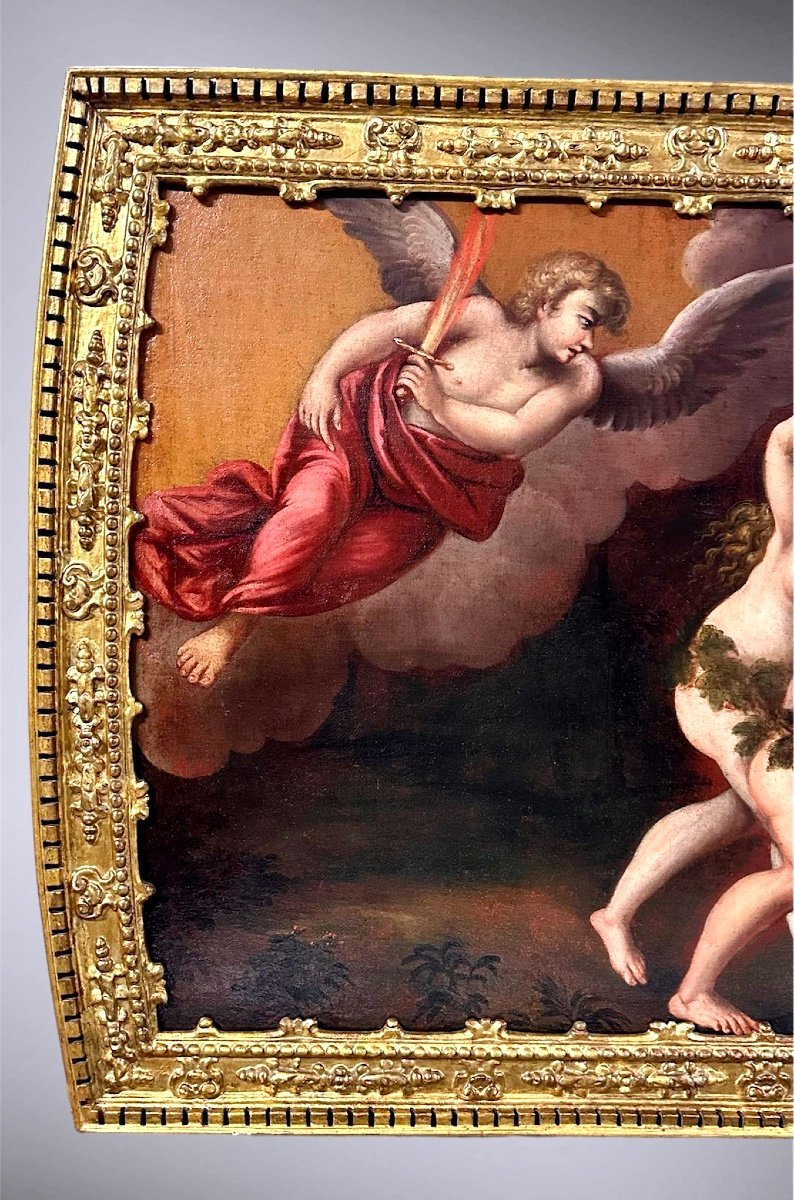






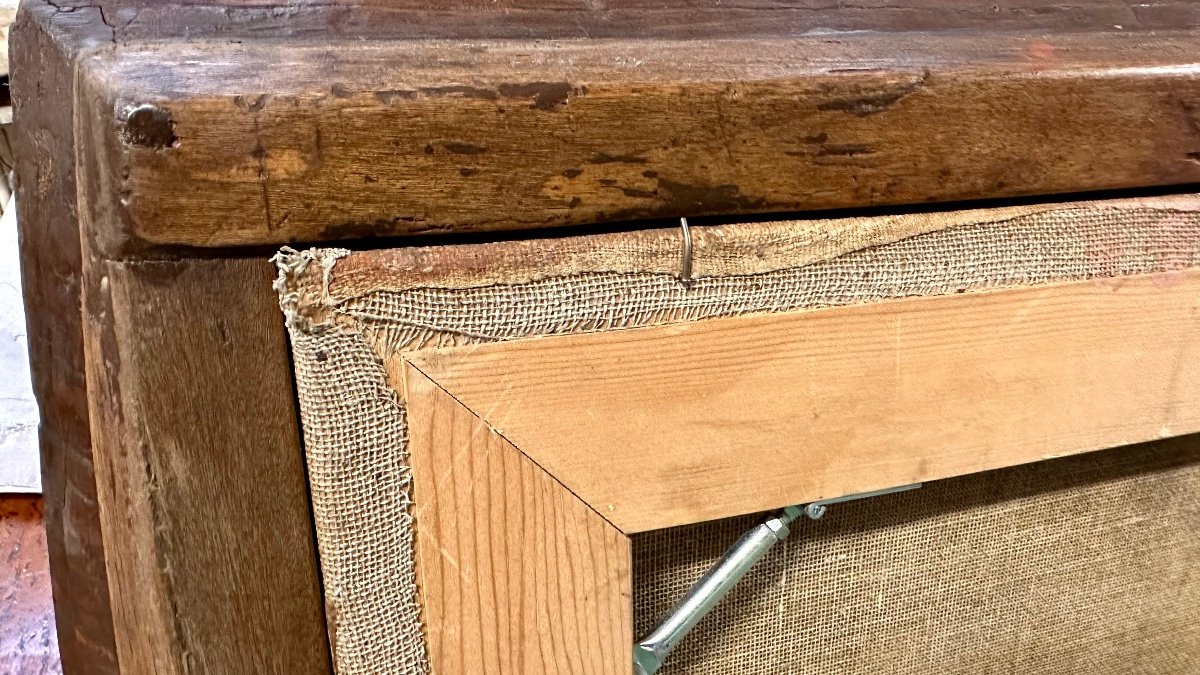


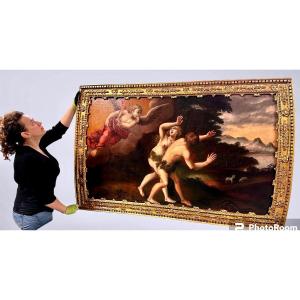















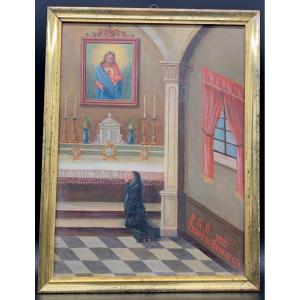

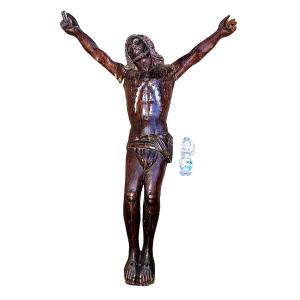
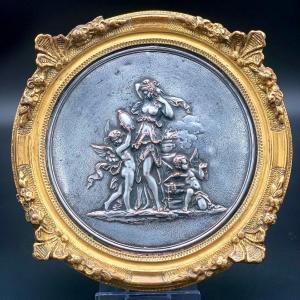
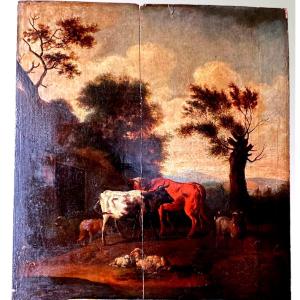

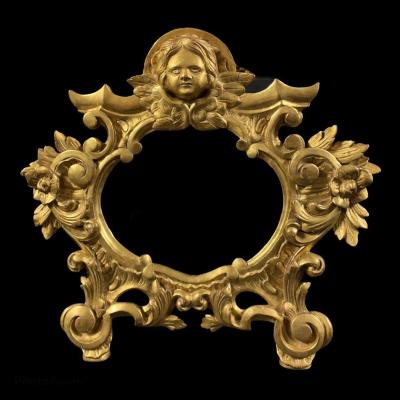

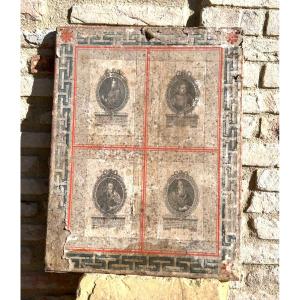


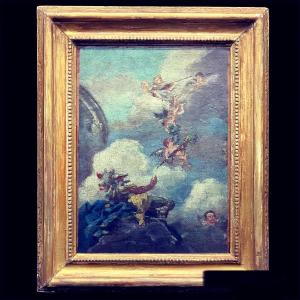

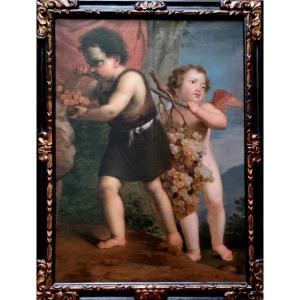






 Le Magazine de PROANTIC
Le Magazine de PROANTIC TRÉSORS Magazine
TRÉSORS Magazine Rivista Artiquariato
Rivista Artiquariato